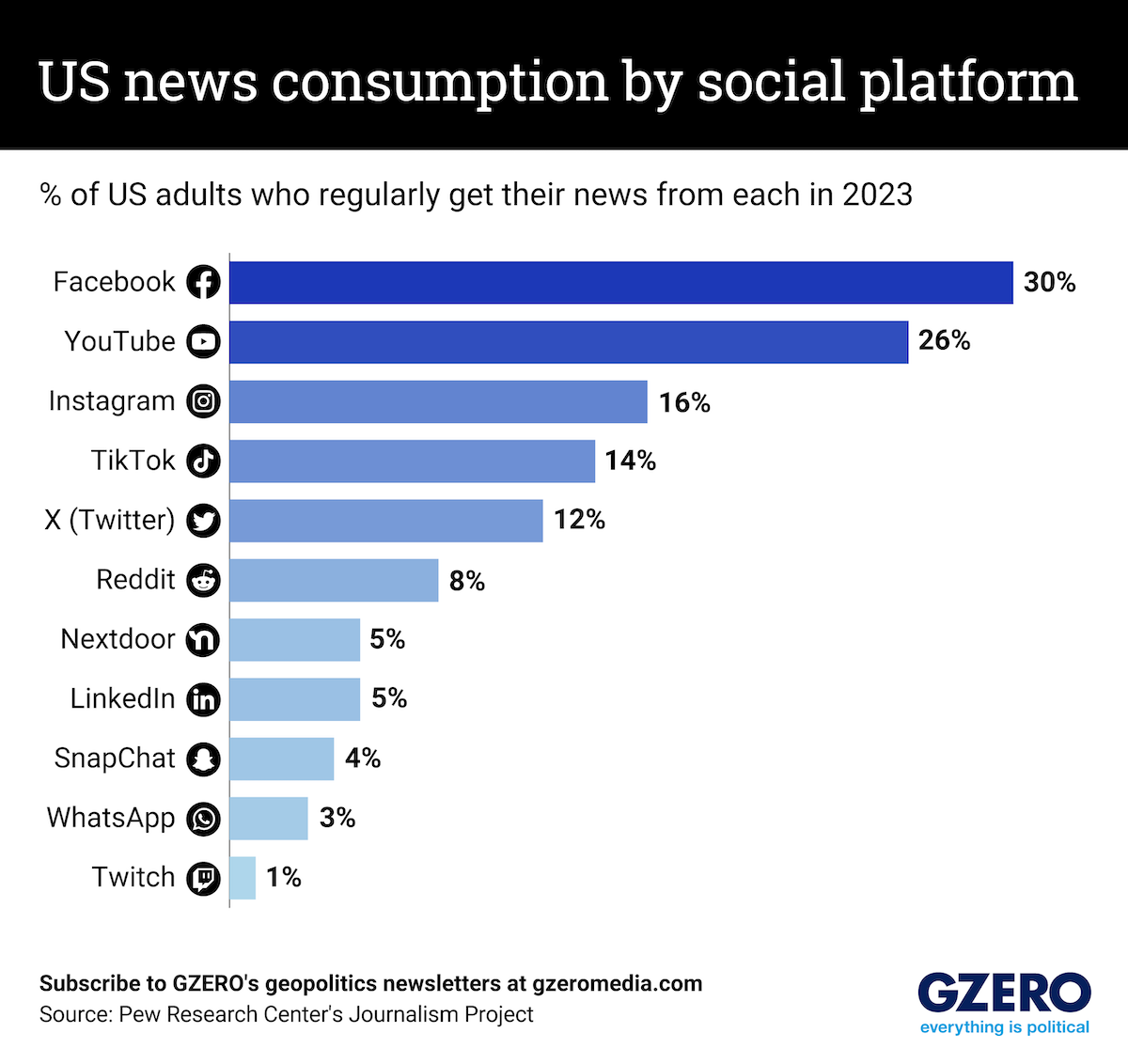November 28, 2023
Facebook continues to lead the pack for social media sites Americans turn to for news, according to recent polling from the Pew Research Center.
The site has a well-documented history of being a breeding ground for misinformation, which continues to be a topic of concern in Washington with the 2024 election on the horizon.
Pew found that half of US adults get their news from social media at least some of the time, while 30% regularly get their news from Facebook. Next up was YouTube, followed by Instagram, TikTok, and X, formerly known as Twitter. Like Facebook, all of these platforms have also faced issues with the spread of disinformation as well as rampant hate speech.
More For You
- YouTube
How will energy shape global power in 2026 and beyond? In GZERO’s 2026 Top Risks livestream, Gerald Butts, Senior Advisor at Eurasia Group, breaks down the growing US-China competition for energy dominance.
Most Popular
Sponsored posts
Surgery’s robotic shift
What's Good Wednesdays
What’s Good Wednesdays™, January 7, 2026
Venezuela's President Nicolas Maduro speaks with China's President Xi Jinping.
REUTERS/Carlos Garcia Rawlins
US President Donald Trump said Tuesday Venezuela would ship up to 50 billion barrels of crude oil, worth about $3 billion, to the US. Hours later, the US energy secretary said Washington would “indefinitely” control Venezuela’s oil industry, which is currently run by the Venezuelan government.
Supporters of the UAE-backed separatist Southern Transitional Council (STC) wave flags of the United Arab Emirates and of the STC, during a rally in Aden, Yemen, on December 30, 2025.
REUTERS/Fawaz Salman
The UAE and Saudi Arabia were once on the same side in Yemen, but no longer. The split has exposed a larger regional rift between the two oil-rich, Gulf powers.
Walmart’s $350 billion commitment to American manufacturing means two-thirds of the products we buy come straight from our backyard to yours. From New Jersey hot sauce to grills made in Tennessee, Walmart is stocking the shelves with products rooted in local communities. The impact? Over 750,000 American jobs - putting more people to work and keeping communities strong. Learn more here.
© 2025 GZERO Media. All Rights Reserved | A Eurasia Group media company.
